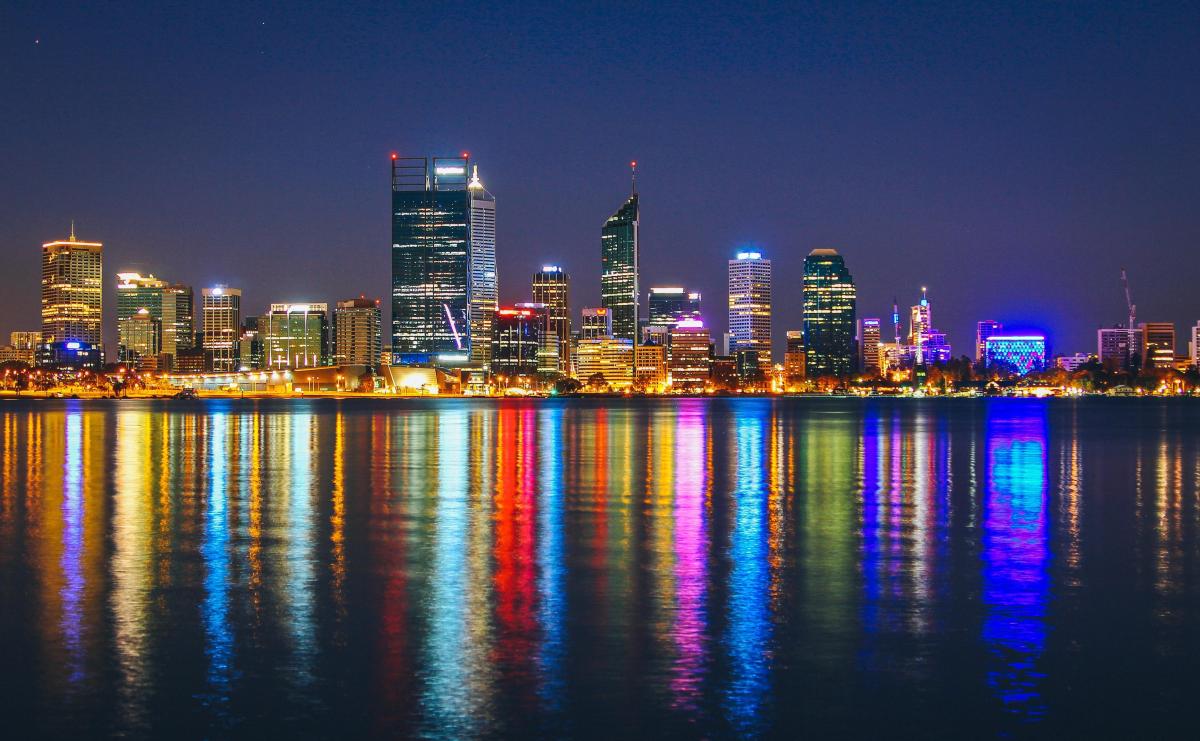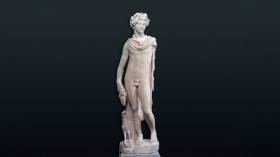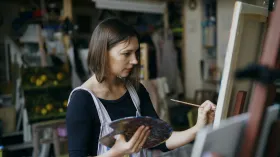This Saturday 13 March, Western Australia goes to the polls to determine which political party will next form government in the state.
While the safe return of the incumbent Labor Government led by Premier Mark McGowan is widely predicted, the subject of arts policy has received less attention in recent weeks, especially in the mainstream media.
As part of our coverage of the WA election, ArtsHub approached Minister for Culture and the Arts the Hon. David Templeman MP, Shadow Minister for Culture and the Arts Michael Mischin MLC, and the Greens WA’s arts spokesperson the Hon. Tim Clifford MLC, for opinion pieces spruiking their respective party’s arts policies and their creative visions for the state.
Only the Greens were forthcoming. The ALP said they hoped to provide such a piece but had not done so at the time of writing. The Liberals did not even reply to our phone calls and emails – perhaps being more focused on saving the small number of seats they’re hoping to hold in what is forecast to be a near-complete wipe-out for their party in Western Australia.
Read: The Greens’ plans for the arts in WA
The Chamber of Arts and Culture WA has previously welcomed the McGowan Government’s commitment to major infrastructure projects in the state, including a new film studio, an Aboriginal arts centre and a world class facility for the West Australian Academy of Performing Arts.
Simultaneously, in an opinion piece for ArtsHub written by Executive Director Shelagh Magadza, the Chamber noted the need to parallel such investment with a commitment to skills development and employment pathways for artists, to ensure WA has a workforce that will fill these new facilities with stories, and create work that will engage audiences and markets locally and and worldwide.
Read: Reinventing the arts sector’s trajectory as WA election looms
Without politicians to put their plans forward, we turned instead to the Western Australian arts sector, asking the leaders of a range of arts organisations, from state companies though to the small to medium sector, to put their views forward instead.
We asked them to articulate what they believe the number one priority in terms of arts policy should be for whichever party next forms government in the state. Here’s what they had to say:
Peter Kift, General Manager, and Eva Grace Mullaley, Artistic Director, Yirra Yaakin Theatre Company
‘An articulated state arts and cultural policy that provides a blueprint for embedding arts and culture throughout the community that also encompasses local government, with a particular focus on First Nations arts.
‘We would like more support provided to the independent theatre sector, while providing additional support towards development funding and capacity-building within existing organisations.’
Amy Barrett-Lennard, Director, Perth Institute of Contemporary Arts
‘We would love to see the WA Government invest in programs, projects, organisations and cross-portfolio initiatives that elevate the role, reach and remuneration of artists and arts workers. Arts and creativity are intrinsic ingredients in a cohesive, confident and thriving community with research supporting their role in key agendas including health and well-being, education, tourism and diplomacy.
‘The WA economy is strong, and the arts sector has helped it bounce back after the impacts of 2020. Expanded and confident government investment will lead to a positive and vibrant impact for all Western Australians for many years to come.’
Paul MacPhail, Chief Executive Officer, Regional Arts WA
‘Regional artists and arts organisations are desperately in need of increased investment and capacity development to engage with their communities and lead them out of the impacts of COVID-19. Current programs, however, favour an approach of delivering art to the regions, rather than investing in regional arts themselves and from a regional perspective appear fragmented and lacking a cohesive vision.
‘More broadly, an arts policy that acknowledged the need for an increase in funding from consolidated revenue rather than a reliance on Lotterywest income is vital to the health of the West Australian arts sector.’
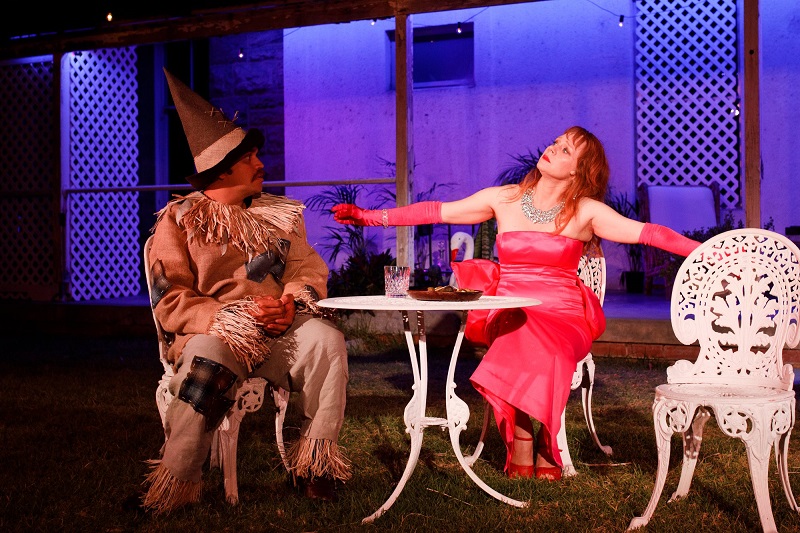
A scene from Black Swan’s latest production, The Cherry Orchard. Photo credit: Daniel J Grant.
Rick Heath, Executive Director and Co-CEO, Black Swan State Theatre Company
‘The disruption of the last year brought about by COVID has highlighted two important issues: the need to keep our community connected and the essential role the arts plays in doing this.
‘My challenge to a new WA government is to provide greater security for the industry as a whole to get on with what they do best – making great art. A mature society thrives on creativity and innovation, which are also the foundations of great art. Success in this area comes from confidence built by commitment and courage.
‘A new WA government will match the commitment and courage of the arts industry by providing long-term stability to artists and cultural organisations through consolidated revenue. This will enable the creative industries across our entire state to confidently plan for projects that boost employment opportunities, resilience in the sector and allow us all to benefit from the extraordinary talent in this state.’
Helen Hristofski, CEO/Executive Producer, Barking Gecko Theatre
‘There’s not much oil left on the rag for many WA companies who do not have the privilege of ongoing, stable state/federal funding agreements, and this undermines the potential of the entire sector, calculated to be around $3.3 billion and employing 53,000 people. The way in which the pandemic was managed in WA was extraordinary and we are grateful for that; now we need to make sure the tail of the impact is as short as possible.
‘Barking Gecko Theatre occupies a unique place in the cultural landscape – crafting theatre and creative learning experiences especially for children, speaking to them in the here and now. We ask the incoming leadership to remember that when the pandemic hit, Barking Gecko was amongst a group of nationally significant youth arts organisations defunded by the Australia Council, sending a message to children, and the artists that create theatre for and with them, that they are dispensable in the shrinking arts ecology.
‘For years now, funding for youth arts and children’s theatre companies has quietly and persistently diminished along with the specialist expertise, job pathways and craftmanship that comes with these organisations. Ultimately, it is children who lose out.
‘It’s gratifying to be acknowledged as makers of some of the finest family theatre in the country and so we invite the incoming leadership to care for and invest in scaling the potential of Barking Gecko with new investment – to ensure we make more than one production a year, increase employment and double our audiences of children and young people.’
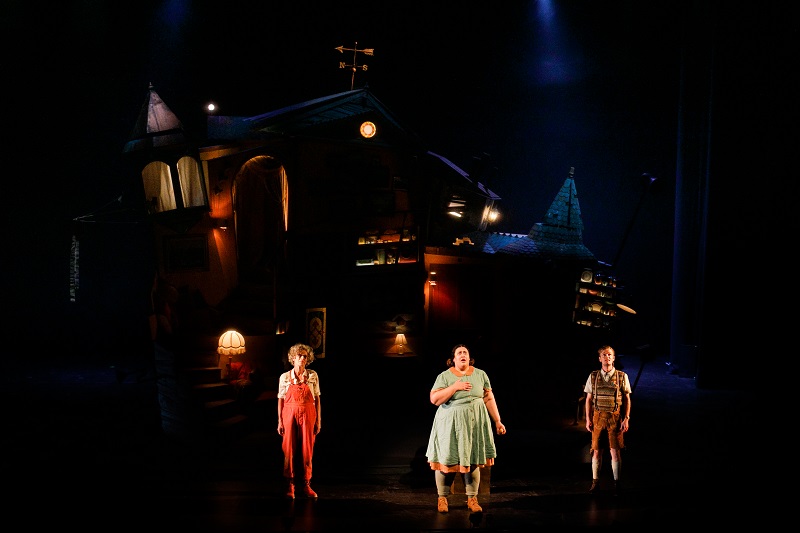
Piotr (Isaac Diamond), Elka (Nicola Bartlett), and Cathelijn (Chanella Macri) in HOUSE by Dan Giovannoni, Barking Gecko Theatre, 2021. Photo by Daniel James Grant.
David Hansen, Chair, Spare Parts Puppet Theatre
‘The State Government is the recipient of a huge budget surplus thanks to a booming resources sector. Now is the opportune time to take a longer-term view in the approach to arts and culture funding. This should be in the form of asset upgrades and also supporting organisations to grow new attractions. Without a strong home grown arts and culture industry backed by the State Government, WA will be worse off as we come out of an economy hammered by COVID restrictions.’
West Australian Opera Executive Director Carolyn Chard AM
‘The priority for a new WA government is to value and prioritise the arts in our lives and communities.
‘At this time of pandemic we are all desperate to connect with each other. We know the power of music to nurture the soul; we know that the arts nourish and inspire us. West Australians engaged deeply with virtual and online arts during the last tumultuous year (music, movies, reading, games, dancing, crafts, painting, exploring creativity) while the live arts sector disappeared and we are now rebuilding and reconnecting. In Western Australia we are grateful that theatres are able to open to 75% capacity.
The state government has supported the larger arts companies with a number of funding initiatives and we are ready to present work that we have rescheduled and commissioned from last year. We are grateful for this support and we appreciate new initiatives (WAAPA moving into the city; the expansion of WA film; the restoration of the balconies at the home of opera, His Majesty’s Theatre).
‘Prioritising the arts for a new WA government means continuing and increasing support pathways for independent artists and for companies and festivals. We have all made pivots into new ways of working, challenging norms and finding new delivery channels. We need to ensure this continues with vigour, creativity, strength and resilience. We have the opportunity to tell our stories in new ways. The amazing artists and creative thinkers of this great state can help heal and nurture the human spirit as we come together to recover.
West Australian artists can inspire the community and the public while having a positive impact on the economy and contributing to building brand WA. What a great opportunity for a new WA government to show arts leadership to the nation.’
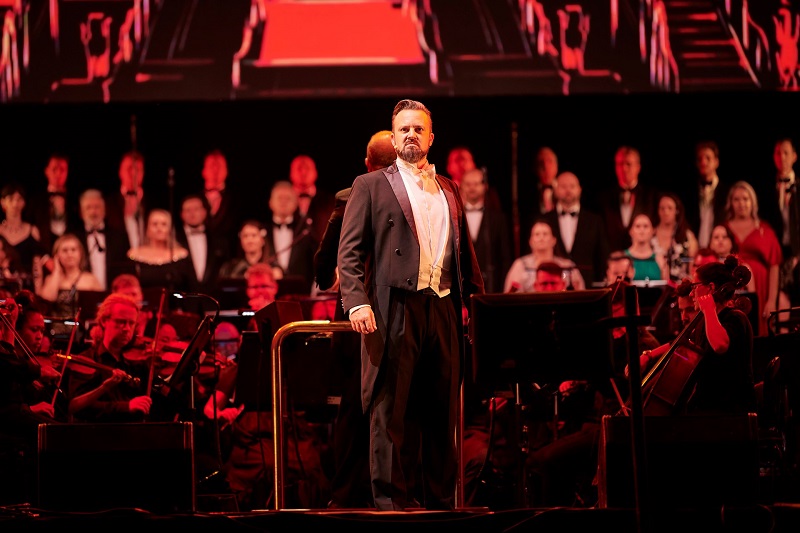
Opera in the Park 2021, West Australian Opera. Photo credit: Rebecca Mansell.
Kathryn Taylor, Manager Arts and Culture, City of Fremantle
‘We welcomed the recent pledge from the Government for the $100 million investment in a film and screen studio in Fremantle. This critical piece of infrastructure alongside an investment incentive fund is an incredible opportunity to support and grow the sector.
‘Another top priority should be to provide increased organisation and program funding available to the sector through the Department of Local Government, Sport and Cultural Industries. Funding for the Department’s programs currently comes from an annual dividend paid by Lotterywest. The last three years have seen volatility with this funding.
‘Consistent and stable funding with a guaranteed minimum amount would support job opportunities for the Arts and Culture Sector, fund more strategic initiatives and develop artists ensuring the sector thrives into the future.
‘Development of Local Government Cultural Plans is another key priority. The local government sector is well placed to deliver grassroots accessible and responsive arts and culture programs to community. Mandated cultural planning would ensure local government investment achieves impactful outcomes.’
Paul Shannon, Chief Executive, West Australian Symphony Orchestra
‘WASO is proudly the largest employer of performing artists in Western Australia, providing performances, education and community engagement activities for hundreds of thousands of West Australians each year. We know that music has the power to touch the soul and enrich lives and that a strong and diverse arts and culture community is vital to a vibrant Western Australian community.
‘2020 demonstrated that our sector’s ecosystem is fragile, particularly for independent and emerging practitioners. A newly elected WA Government has the opportunity to work positively with the entire industry through a comprehensive sector policy that prioritises continued investment in capacity building and sustained pathways to establish a stronger and more robust WA arts and culture ecology post COVID.’
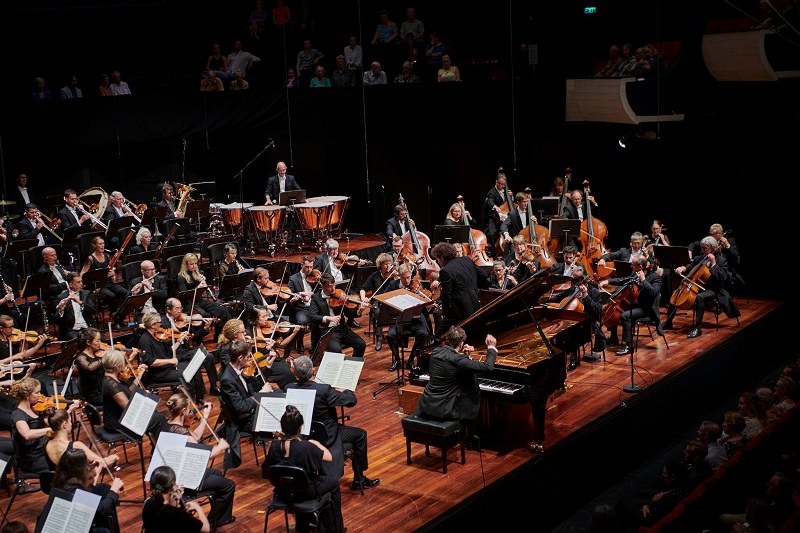
Principal Conductor Asher Fisch and WASO at the recent Principal Conductor Asher Fisch at the recent concert, Romance and Mystery. Image via Facebook.
Jay Emmanuel, Artistic Director, Encounter
‘We’re in a very privileged position to gather and create art during this time in WA. It is an opportune time for the government to acknowledge that art matters, and also to acknowledge its contribution to the cultural and economic flourishing of WA.
‘The summer festivals have been a respite for the arts sector but there is a sense of looming uncertainty around what’s next. How do we sustain a career in the arts post-festivals? A lot of artists and production crew are moving into other industries and this could be tragic for our sector. We need immediate investment in cultural infrastructure and also directly into creating new opportunities year-round for people and stories to thrive in this COVID-restricted world.’
Nathan Bennett, Executive Director, Perth Festival
‘The importance of arts and culture in all of our lives has never been more evident than during the lockdowns and restrictions of a very treacherous 2020 and early 2021.
‘After the COVID crisis, we face a period of rebuilding our society and economy. The social and economic value of the jobs-intensive creative sector can be a linchpin in this recovery. Polices that integrate arts, culture and innovation across industry, health, tourism, education and other sectors can unlock significant benefits for us all.
‘Government assistance – such as the COVID-19 relief package by our unique State-run community grants agency Lotterywest – has been invaluable this past year. Public support, complemented by private investment, will continue to be critical for the recovery of the sector, worth $3.3 billion alone to the WA economy before COVID struck.
‘After the completion of the world-leading WA Museum Boorla Bardip last year, there are further major commitments to significant and much-needed cultural infrastructure projects. As always with such facilities, these require sustainable and ongoing programming investment to properly tell our stories, serve our community and generate jobs.
‘It would be great to see even more progress in all tiers of government working together on cultural policy to maximise their impact on the ground and in the community.
‘And there seems to be a unique opportunity out of this crisis – with so much focus on the great artistic productivity in our own backyard – to facilitate the touring of Western Australian productions and programs around regional WA, the nation and ultimately the world.’
Alana Culverhouse, Executive Director, Co3 Contemporary Dance
‘It is critical that government increase their investment into arts and culture. If COVID-19 has shown us anything it’s how fragile our industry is, but also how important it is to society in keeping us all connected and buoyed during crisis. We have seen here in Perth that the appreciation and interest in arts has been in high demand after lockdown and this is something that will continue.
‘Funding for longer development periods and ensuring contracted artists and their employment is safeguarded and sustained is critical to producing high quality, well thought out and relevant works.
‘A government that holds art and its artists in the highest regard as the centre of a healthy thriving community is exactly what we need in this State. We have demonstrated we can do this in the most trying of times. Give us the chance to really be there for our community when they need us most.’
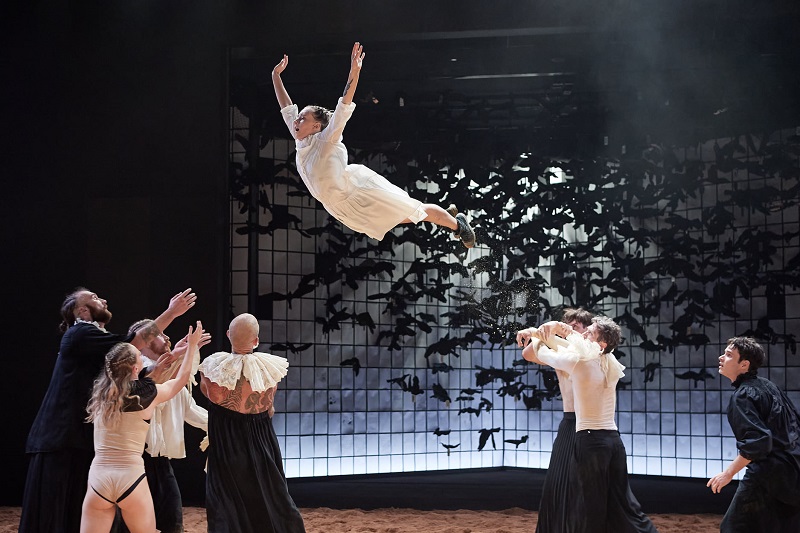
Co3’s Archives of Humanity, Photo credit: Stefan Gosatti.
Margrete Helgeby Chaney, Chair, Co3 Contemporary Dance
‘Government should work closely with the Chamber of Arts and Culture (CACWA) in understanding sector priorities. Consider developing a taskforce drawn from all government portfolios that can highlight the value of arts engagement into one cohesive picture.
‘Use this to be ambitious in your support. Invest meaningfully in developing great artists, arts capabilities and business practices. Trust and have confidence of the long term and broad-reaching economic and social return and rewards that will arise when artists and arts organisations are funded to flourish not merely survive.’
Katt Osborne, Executive Director, The Blue Room Theatre
‘Our state government’s response to COVID relief for the arts sector was welcome, however was focused mostly on new and upgrading infrastructure. The Blue Room Theatre supports the policy platform put forward by the Chamber of Culture and Arts and agrees that the number one priority moving forward is to invest in increased funding and jobs for our local artists and makers. These artists will be the ones who will actually activate this new infrastructure, our institutions and communities.’
Sally Richardson, Steamwork Arts
‘The WA arts sector needs a return to full capacity in all venues effective immediately. Employment of WA artists and the re-building of audience confidence is essential to the sustainability of the sector. Whether you are performing in a regional community town hall or in a big city venue, or at an outdoors music festival we all need to feel confident that engaging in the arts, in coming together as a community is safe.
‘This is the message that must be communicated to the wider community. The government also needs to continue to provide fresh opportunities, new programs and bridging subsidies to assist and support the recovery and rejuvenation of our communities. Now is the moment to encourage the future potential of all artists.’
The Western Australian election takes place this Saturday, 13 March 2021.

